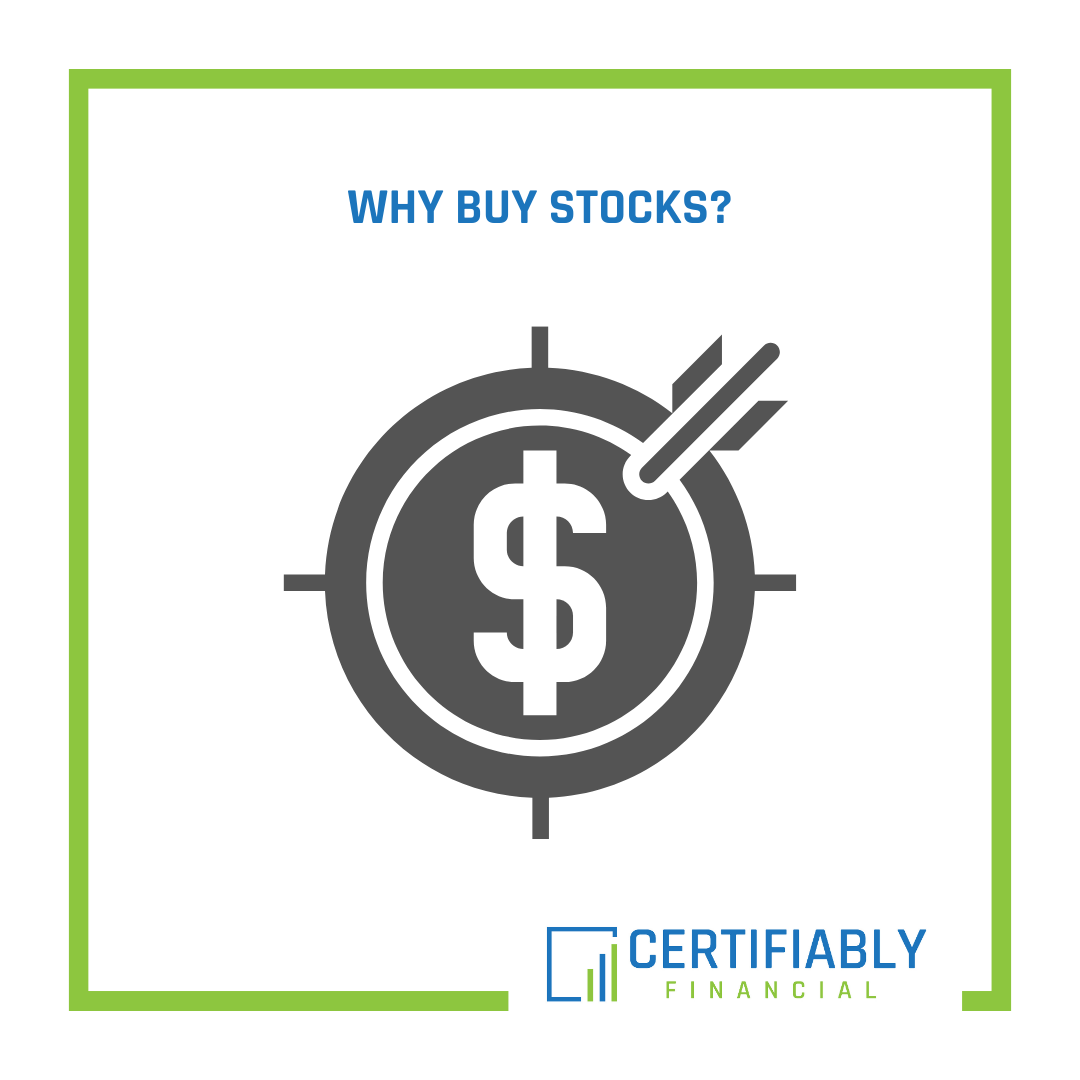Over the past couple of weeks, a lot of people have been asking me about this stock or that cryptocurrency, what I think of them, and whether I think they’ll do well going forward. I think that most of these people probably read an article(s) or saw something on TV about the thing that they asked me about and then either bought it or wanted me to confirm what they heard before they bought it.
(This is a form of confirmation bias).
Every time someone asks me something like this I tell them that I don’t know.
“Only buy something that you’d be perfectly happy to hold if the market shut down for ten years.” – Warren Buffett
99% of my portfolio is invested in mutual funds and ETFs. The other 1% is what I consider “play money” in individual stocks (notice how small of a percentage of my portfolio this is). There are so many reasons that I would rather have the majority of my portfolio in mutual funds and ETFs rather than individual stocks, but that’s a whole different article for another day.
Why Buy Stocks?
I think that the reason that a lot of people buy individual stocks rather than broad baskets of securities like mutual funds and ETFs is because they read an article about what stocks are hot or hear a tip about what to buy from a talking head on TV. A lot of people buy a particular stock because of the hype. The hype around it makes them believe that there’s potential it will go up and that they’ll make money off of it.
There’s nothing inherently wrong with buying a stock if you believe in the company and believe that you’re buying it at a good price, but there’s a more fundamental reason to do so.
Purchasing a share of stock means that you are purchasing ownership in a company. Having ownership in a company means that you own the right to that portion of the company’s cash flow.
The most fundamental reason that you buy a stock is for the right to that cash flow, whether that comes now or in the future. Sometimes, you invest in a company because it’s currently generating good cash flow from selling its product or service. Sometimes, you invest in a company that may not have good cash flow (or may actually be losing money), but that you think will generate more cash flow than the market average in the future.
Either way, without strong current cash flow or a projection of better-than-average cash flow in the future, it’s hard for a company to grow and for its stock price to appreciate.
Valuing Stocks
As a finance major, you’re taught to find a company’s intrinsic value through fundamental analysis. Doing so helps you to determine whether you think that the company’s stock is undervalued, fairly valued, or overvalued.
Fundamental analysis involves looking at the state of the macro economy, the industry that the company operates in, and the financial statements (balance sheet, income statement, cash flow statement, etc.) and measures (revenue, earnings, price-to-earnings ratio, return-on-equity, etc.) of the company itself.
It does not take into consideration what uncle Joe said at Thanksgiving, what the random person on the internet wrote about the company in an article, or what you hear about it on financial TV.
So, the next time that you hear someone talking about that hot stock, cryptocurrency, or whatever else it may be, take a step back and remind yourself why you would want to or would not want to buy that asset based on factors other than the hype and speculation that it could do better than the market. In fact, Warren Buffett says that you should not buy a stock just because you think its price will increase. He says that you should write down on a piece of paper exactly why you’re investing in that company.
Comparing Returns
As of September 10, 2020, most stocks had underperformed the stock market this year1. A lot of people don’t realize that the performance of the US stock market over recent years has largely been driven by the top 5 companies. If you haven’t been investing directly in those companies, then you’ve been much more likely to underperform the stock market than to even get the market return.
At that point, you might as well stick your money in an index fund and call it a day. Even most of the pros don’t beat their benchmarks.
I don’t think that most people take this into consideration, though. Most people look at the dollar gain on their investment rather than the percentage gain. “I’ve gained $5,000.” Yeah, but what would you have gained if you would have invested that in an index or something else?
Have An Exit Plan
I also think that many people get into stocks without having an exit plan. That can be okay if you’re planning on holding forever, but a lot of people are just looking for the short-term gain. It’s hard to cut your losses and sell when you’ve lost money on a stock. It’s hard to sell when you see the price keep climbing. It’s even harder to sell when you see the price dropping and your gains continue to vanish. It’ll go back up, right?
Stock picking is a form of gambling. Holding a diversified asset allocation for the long run is investing.

